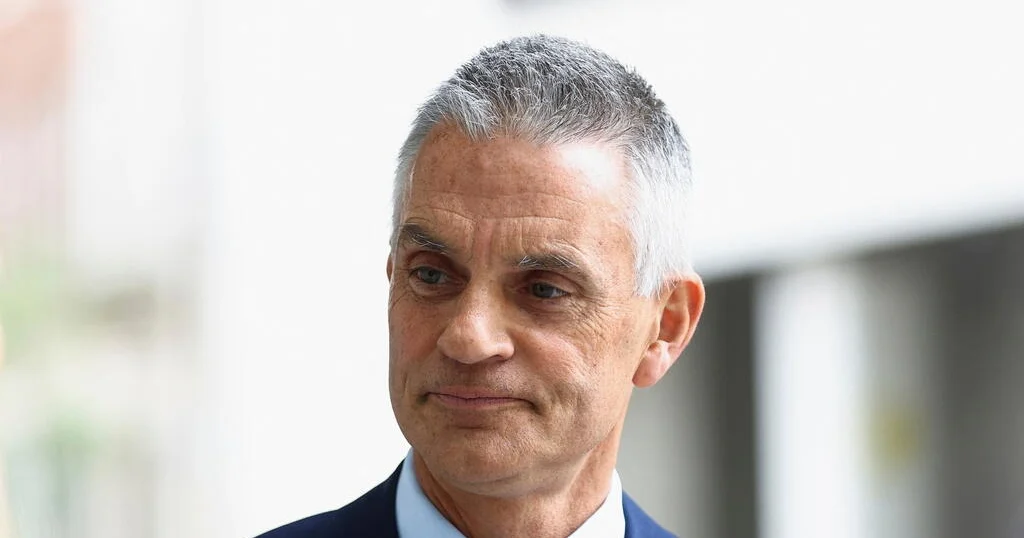In a significant leadership shakeup, the head of Britain’s public broadcaster, the BBC, announced their resignation after mounting criticism surrounding the editing of a speech by former President Donald Trump. Both Director-General Tim Davie and head of news Deborah Turness stepped down amid allegations of misleading editorial decisions regarding a key documentary. This move has sparked discussions about media accountability and transparency within public broadcasting institutions.
| Article Subheadings |
|---|
| 1) Resignations of BBC Leaders |
| 2) Details of the Controversial Edit |
| 3) Reaction from Political Figures |
| 4) Media Accountability Concerns |
| 5) Future of BBC’s Leadership |
Resignations of BBC Leaders
The recent resignations of Tim Davie as Director-General and Deborah Turness as head of news underscore a significant moment for the BBC. Their announcement came amid ongoing scrutiny of the broadcaster’s editorial integrity. Both leaders cited the need for accountability and adherence to the BBC’s values as pivotal in their decision to step down.
“This is entirely my decision,”
stated Davie in a letter to staff. He emphasized that a five-year tenure brings numerous challenges, making it imperative to acknowledge and address any mistakes on his part.
Details of the Controversial Edit
The controversy centered around a documentary aired on the BBC’s acclaimed Panorama program, which featured a segment from a Donald Trump speech delivered on January 6, 2021, prior to the Capitol riots. Critics have argued that crucial portions of the speech were omitted, specifically where Trump called for a peaceful demonstration, leading to allegations of intentionally misleading editing. The backlash intensified following the publication of a dossier by consultant Michael Prescott, who had been engaged to advise the BBC on maintaining editorial standards. The document pointed out this specific edit as not only problematic but emblematic of a broader issue regarding the BBC’s impartiality in reporting.
Reaction from Political Figures
Political leaders responded promptly to the news of the resignations. Lisa Nandy, the United Kingdom’s Culture Secretary, expressed gratitude for Davie’s service, noting that he had played a vital role in navigating the challenges faced by the BBC in recent years. “Now more than ever, the need for trusted news and high-quality programming is essential to our democratic and cultural life,” Nandy commented. The sentiments echoed by political figures reflect a recognition of the intricate balance between media representation and democracy in the UK.
Media Accountability Concerns
The BBC operates in a unique position within the UK’s media landscape, being the only national broadcaster funded through a mandatory licensing fee. As such, it is held to a higher standard of accountability and impartiality compared to its commercial rivals. Critics, including various media outlets, have been quick to challenge the BBC’s objectivity, especially regarding its coverage of contentious issues such as political events or social topics like transgender rights. The accusations of bias have sparked debates about the responsibility of public institutions in presenting balanced news.
Future of BBC’s Leadership
The resignations of Davie and Turness raise questions about the future leadership of the BBC. An orderly transition is expected, with Davie stating he is working closely with the board to identify a suitable successor. The task ahead will be significant, as the organization seeks to regain trust among its audience and maintain its reputation as a leading news provider. The incoming leadership will need to navigate the complex landscape of public opinion and media ethics, ensuring the BBC upholds its commitment to impartial journalism amidst scrutiny.
| No. | Key Points |
|---|---|
| 1 | Directors of the BBC resigned following criticism of editing practices. |
| 2 | Editing of a Donald Trump speech for a documentary sparked controversy. |
| 3 | Political figures stressed the need for accountability within the BBC. |
| 4 | Concerns of media bias were raised regarding the BBC’s coverage. |
| 5 | The search for new leadership will emphasize regaining public trust. |
Summary
The resignations of Tim Davie and Deborah Turness mark a crucial turning point for the BBC, highlighting the intense scrutiny public broadcasters face in delivering unbiased news. The incident underscores the pressing need for media organizations to remain vigilant in their editorial responsibilities, especially in an era where public trust is paramount. As the BBC prepares for new leadership, the organization must recommit to its values of impartial reporting and transparency.
Frequently Asked Questions
Question: What sparked the resignations of the BBC leaders?
The resignations were primarily triggered by criticism regarding the manipulation of a Donald Trump speech in a documentary, which was perceived as misleading by various critics.
Question: Who is Michael Prescott?
Michael Prescott is a consultant who was hired to advise the BBC on maintaining standards and guidelines for impartial reporting, and he authored a dossier critical of the broadcaster’s recent editorial decisions.
Question: What is the BBC’s funding model?
The BBC is funded primarily through an annual license fee, which is paid by all households owning a television in the UK, making its accountability and impartiality a high priority.


